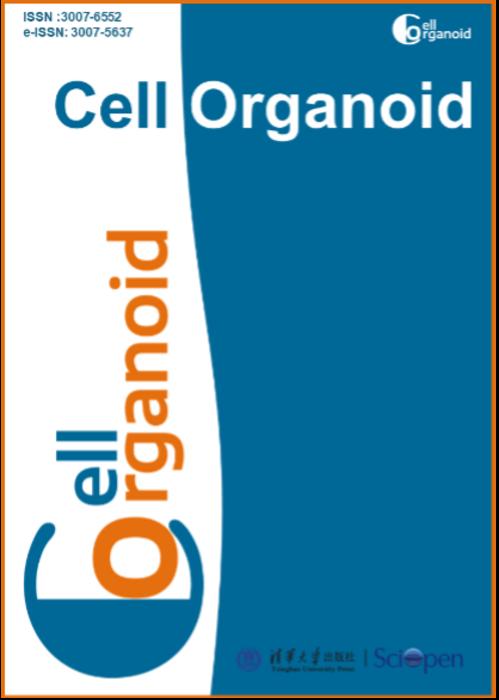Organoid technology began with Professor Hans Clevers’ 2009 breakthrough in cultivating the first intestinal organoid from mice. Since then, the field has expanded exponentially, showcasing organoids’ remarkable capabilities in replicating human organ physiology and pathology. Organoids, which are three-dimensional stem cell cultures, offer powerful tools for studying organ development, modeling diseases, and facilitating drug discovery. Their ability to maintain genetic diversity and mimic complex biological processes makes them invaluable in biomedical research.

Credit: Cell Organoid Editorial Office
Organoid technology began with Professor Hans Clevers’ 2009 breakthrough in cultivating the first intestinal organoid from mice. Since then, the field has expanded exponentially, showcasing organoids’ remarkable capabilities in replicating human organ physiology and pathology. Organoids, which are three-dimensional stem cell cultures, offer powerful tools for studying organ development, modeling diseases, and facilitating drug discovery. Their ability to maintain genetic diversity and mimic complex biological processes makes them invaluable in biomedical research.
Published by Tsinghua University Press, Cell Organoid brings together leading experts from diverse fields, including developmental biology, stem cell research, tissue engineering, and computational biology. The journal’s editorial board comprises renowned scientists dedicated to advancing organoid research. The journal aims to provide a comprehensive overview of current trends and future directions in this rapidly evolving field.
Organoids replicate human organs’ physiology and pathology, playing a crucial role in understanding developmental mechanisms, identifying therapeutic targets, and advancing organ transplantation research. Despite significant advancements, the field faces challenges such as standardizing methodologies, developing appropriate biomaterials, and creating vascular systems for nutrient supply and waste removal. Additionally, ethical considerations arise, particularly with human brain organoids, which present complex questions about moral status and research implications. Addressing these challenges requires interdisciplinary approaches and innovative techniques like organ-on-chip optimization.
Cell Organoid is headed up by an academic Editor-in-Chief, Prof. Chen-Zhong Li, and an Executive Editor-in-Chief, Dr. Libra Lou. They emphasize that Cell Organoid will serve as a central hub for high-quality research, fostering innovation and collaboration across disciplines. The journal’s mission is to push the boundaries of knowledge while maintaining the highest standards of scientific rigor and research integrity. Through rigorous peer review and editorial oversight, Cell Organoid aims to ensure that each publication represents a valuable contribution to the field of organoid research. The journal seeks to catalyze scientific discovery, promote interdisciplinary collaboration, and accelerate the translation of research findings into clinical applications.
Cell Organoid aims to profoundly impact the biomedical field by bridging the gap between basic research and clinical applications. By addressing ethical, technical, and standardization challenges, the journal aspires to advance personalized medicine and therapeutic interventions. The potential of organoid technology to enhance our understanding of human health and disease is immense, and Cell Organoid is poised to play a crucial role in this scientific revolution. Researchers, clinicians, and students are invited to contribute, review, and engage with this new journal, driving forward the exploration of organoids and opening new vistas of understanding and possibility.
About Cell Organoid
Cell Organoid aims to provide a worldwide platform for research into all aspects of organoids and their applications in medicine. It is an open access, peer-reviewed journal that publishes high-quality articles dealing with a wide range of basic research, clinical and translational medicine study topics in the field.
Journal website: https://www.sciopen.com/journal/3007-6552
Submission site: https://mc03.manuscriptcentral.com/cellorganoid
About SciOpen
SciOpen is an open access resource of scientific and technical content published by Tsinghua University Press and its publishing partners. SciOpen provides end-to-end services across manuscript submission, peer review, content hosting, analytics, identity management, and expert advice to ensure each journal’s development. By digitalizing the publishing process, SciOpen widens the reach, deepens the impact, and accelerates the exchange of ideas.
Journal
Cell Organoid
DOI
10.26599/CO.2024.9410000
Article Title
Unveiling Cell Organoid: A vanguard in organoid research
Article Publication Date
26-Jun-2024



